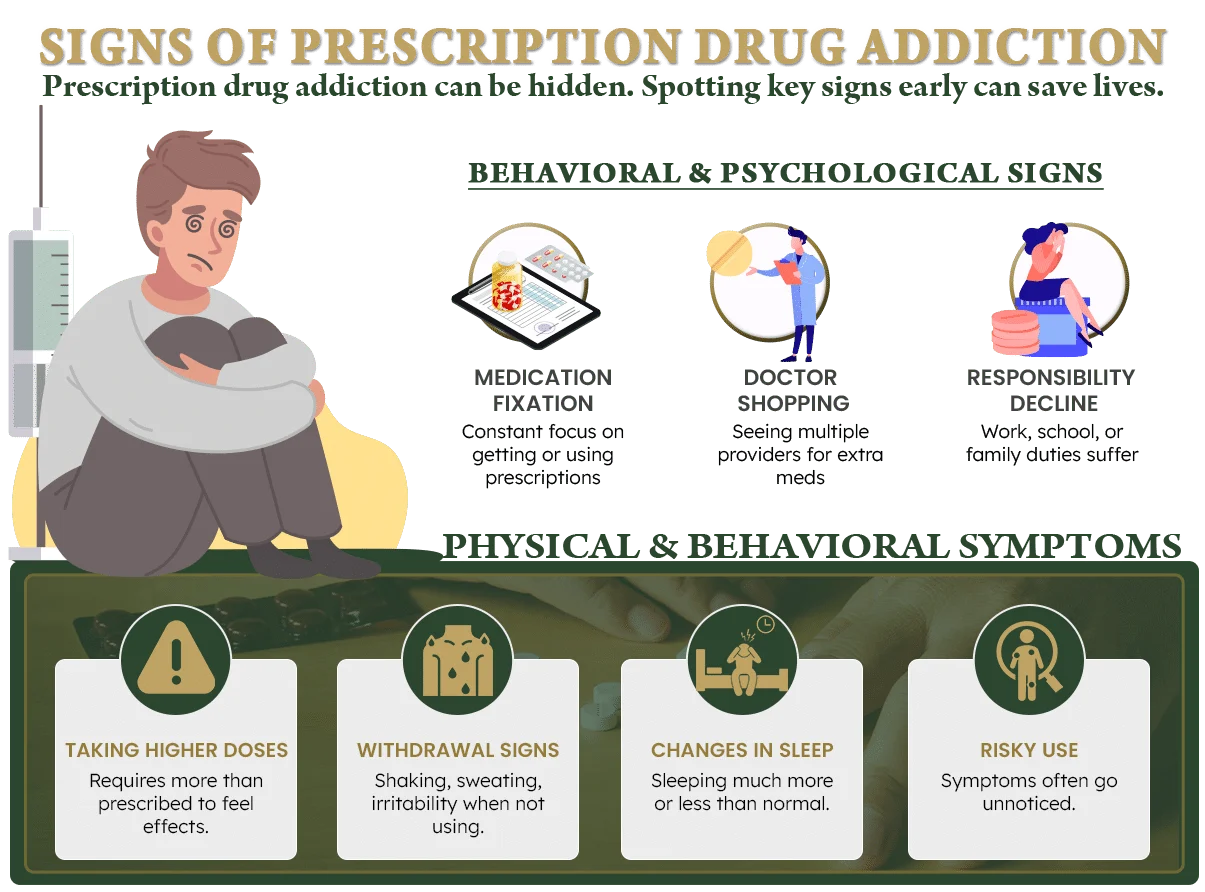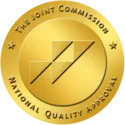Prescription Drug Treatment Center in Idaho
While prescription drugs are important and help with the treatment of countless ailments, the ease with which many people can obtain prescription drugs can also result in a propensity for abuse.
For many, prescription drugs help them go about their daily life as easily as possible. But prescription drugs can be used and abused in ways other than directed, often leading to addiction. Unfortunately, even those taking prescription drugs for legitimate medical purposes sometimes find themselves dependent on the drug and require addiction treatment.
Eagle Creek Ranch Recovery is a prescription drug treatment center committed to helping individuals overcome prescription drug addiction and reclaim their lives. For those suffering from prescription drug addiction, whether the result of recreational use or medical use, it is possible to recover and thrive after an addiction.
A prescription drug is a drug that is prescribed by a doctor or healthcare professional for the purpose of treating a medical condition. Prescription medications can range from something to take for a stomach problem all the way up to life-saving medications needed to treat severe medical issues.
While prescription medications can be highly effective, when used or abused in ways other than directed they can lead to mental and physical health issues (including addiction).
Recognizing When Prescription Drug Abuse is Present

Prescription drugs are fairly common and vary in strength and side effects. The overwhelming majority of people have been prescribed medication by a doctor or healthcare professional at least once in their life.
However, since they are common and easily obtained from pharmacies, they are often used and abused at a much higher rate than other, harder-to-get illicit substances. In fact, according to the National Center for Drug Abuse Statistics (NCDAS), nearly half of all Americans took a prescription drug in the past 30 days (obtained and taken legally or not). Over 16 million people took a prescription drug in a way other than directed in the past year.
Because so many people have access to prescription drugs, being able to properly recognize the signs of prescription drug abuse and addiction, whether it be in yourself or a loved one, is crucial for getting the help that is needed before it is too late.
If you are concerned that either you or a loved one is battling prescription drug abuse, here are a few things to keep an eye out for:
- Taking a higher dose of the medication than prescribed
- Using the medication in ways other than medically directed (such as at different times)
- “Doctor shopping” to obtain multiple prescriptions at once
- Changes in behavior, such as mood swings
- Irregular sleep patterns
- Preoccupation with obtaining or using prescription drugs
- Neglecting responsibilities at work, school, or home
If you answered yes to one or more of the above questions, it may be a sign that you or your loved one is suffering from prescription drug abuse or addiction. Addressing the addiction in a timely manner can help prevent the issue from getting worse and causing permanent damage.
Contact Eagle Creek Ranch
Recovery Today!
Why Wait? Find The Help You Need By Reaching Out To Us Today! Our Admissions Team Is Standing By.
Commonly Abused Prescription Drugs
Given the epidemic of opioid addiction in the US, it’s no secret that the most commonly abused prescription is opioid drugs. According to the NCDAS, 4 out of every 5 prescriptions filled at a pharmacy is an opioid. As a result, over 50% of Americans prescribed an opioid abuse the drug or take it in a way other than directed.
While opioids such as oxycodone are the most commonly abused prescription drug, they are hardly the only prescription drug being abused at a disproportionately high rate. Other commonly abused prescription drugs include benzodiazepines (Xanax, Valium, Ativan, etc.) and stimulants (Adderall, Ritalin, etc.).
Signs and Symptoms of Prescription Drug Abuse

While we touched on things to look out for and questions to ask when it comes to determining if you or a loved one is suffering from prescription drug abuse or addiction, there are also physical signs that can help with determining if there is a larger issue. Not all addicted individuals may show these symptoms, but they may also emerge when a person is undergoing a stressful time or is triggered.
Some of these signs and symptoms of prescription drug abuse include:
- Increased tolerance to the medication (requiring higher doses to achieve the same effects)
- Withdrawal symptoms when not using the medication (such as shaking hands)
- Preoccupation with obtaining and using the drug
- Using the drug despite negative consequences on health, relationships, or finances
- Extreme mood wings
- Changes in sleep patterns
- Poor decision making
- Using prescription drugs in increasingly risky situations, such as driving or in addition to other drugs
Beyond these generic signs and symptoms, certain prescription medications come with their own unique symptoms. These may include:
- Confusion
- Nausea
- Poor coordination
- Dizziness
- Slurred speech
- Constipation
- Anxiety
Before starting a new medication with a risk of addiction, such as a benzodiazepine, read up on the side effects and be aware of signs of developing addiction. Some medications have very distinct effects that may seem harmless. But addiction can still be a risk.
The Effects of Untreated Prescription Drug Addiction
When left untreated, the effects of prescription drug addiction can affect a person on a long-term and short-term basis.This includes damage to other organs besides the brain, which can accumulate over time.
Short-Term Effects
Short-term effects of prescription drug abuse and addiction include:
- Confusion
- Drowsiness
- Nausea and vomiting
- Slowed breathing
- Impaired coordination
Long-Term Effects
Long-term effects of prescription drug abuse and addiction include:
- Liver damage
- Kidney damage
- Cardiovascular problems
- Respiratory issues
- Cognitive impairment
How Do Prescription Drugs Affect The Brain and Body?
Since prescription drugs are administered to treat specific ailments, the brain usually interprets them as helpful entities and not harmful substances. The body doesn’t immediately interpret the drug as a harmful threat that needs to be dispelled.
This is done by the drug attaching itself to the appropriate neurotransmitter, which are chemicals within the brain that transmit signals between nerve cells. Depending on the type of medication, prescription drugs can increase or decrease the activity of certain neurotransmitters, leading to various effects on mood, behavior, and cognition. This can influence the various functions of the body, based on what the prescription is designed to do.
Why Are Prescription Drugs Addictive?
Over time, the brain and body can grow dependent on prescription drugs as it adjusts itself to accommodate for its effects. These changes can be mental (feelings of calmness, happiness, etc.) or physical (pain relief).
Once the brain and body become used to the presence of drugs, it will crave those substances. This can lead to the person taking more of the substance in order to get those desired effects. Continuing to take the drug in ways other than as directed can increase the risk of the development of an addiction.
Prescription Drug Treatment

Eagle Creek Ranch Recovery offers a number of treatment options for those suffering from prescription drug addiction, including those with a dual diagnosis.
At Eagle Creek Ranch Recovery, we offer the following:
Before any type of treatment can begin, those suffering from substance addiction must first undergo detoxification. Detox is done in order to rid the body of all harmful substances that are in it so the brain and body can begin the healing process. Due to the nature of detoxing and the symptoms often associated with the detox process, it should always be done under the care and supervision of trained medical professionals.
Treatment can be done in either inpatient or outpatient form depending on both the person and their needs.
For those choosing inpatient treatment (otherwise known as residential treatment), they live at the facility for the duration of their treatment. This helps prevent any outside temptations or distractions while they undergo treatment.
Outpatient treatment allows for the person to come to the facility during the day for their various therapy sessions and return home to their regular life at the end of the day. Outpatient treatment is ideal for those who aren’t willing or able to commit to inpatient treatment, or people for whom it is determined that inpatient treatment is not necessary.
Therapy is a crucial component of the overall treatment process. Therapy helps those in treatment better understand the factors that led to their addiction. This, in turn, allows them to learn healthier, drug-free ways to handle potentially triggering situations moving forward.
At Eagle Creek Ranch Recovery we offer the following types of therapy:
- Individual and group therapy
- Family therapy
- Trauma therapy
- Cognitive Behavioral Therapy (CBT)
- Dialectical Behavioral Therapy (DBT)
- Adventure therapy
- Equine therapy
- Holistic therapy
Eagle Creek Ranch Recovery Offers Prescription Drug Treatment Center To Help You
At Eagle Creek Ranch Recovery, we understand the challenges of prescription drug addiction and are dedicated to providing personalized, evidence-based treatment to help our clients achieve lasting recovery. Our comprehensive approach addresses the physical, emotional, and social aspects of addiction, empowering individuals to build fulfilling lives free from substance abuse.
If you or someone you love is struggling with prescription drug addiction, contact us today to learn more about our treatment programs and how we can help.

Clinical Director
Kendall Maloof is the clinical director at Eagle Creek Ranch Recovery. She is a licensed marriage and family therapist and has held multiple leadership roles before settling here at Eagle Creek Ranch Recovery. Kendall received her master’s degree in marriage and family therapy from the Chicago School of Professional Psychology in 2016. Her career in mental and behavioral health began in 2014 when she took up internships in both the nonprofit and for profit sectors. She interned at multiple reputable companies, such as The Living Success Center and 449 Recovery in California.
In 2019, Kendall became the clinical director of Sunsets Recovery for Woman, a dual diagnosis program in southern California. Kendall is a natural leader. She has an incredible ability to problem solve and stay calm in any situation. Kendall never fails to show up when she is needed, and her calm demeanor makes her team and clients feel at ease. Eagle Creek Ranch Recovery is proud to have Kendall as our clinical director.


